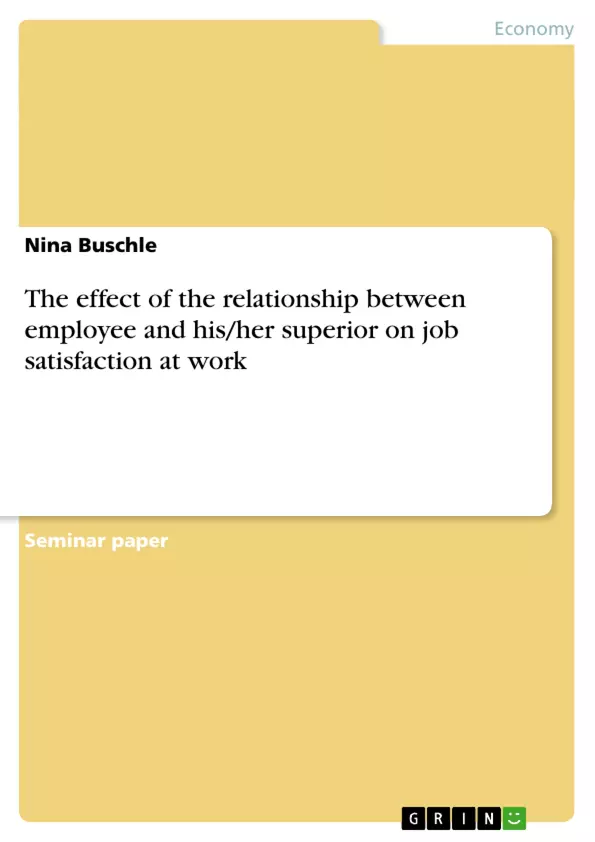The concept of job satisfaction is one of the most extensively researched areas in organisational management. In order to explain the concept, this study explores the topic job satisfaction and links it with the relationship between superior and subordinate. Based on the leader-member exchange theory the following research question is formulated: To what extent does the relationship between an employee and his/her superior affect this employees’ job satisfaction at work? This research paper is based on a study done with a sample size of 12 consultants working in a Human Resources consultancy. Data were collected through a VBBA questionnaire, then analyzed by conducting a t-test and applied to the leader-exchange theory. Results show that there is a strong correlation between a positive relationship to one’s supervisor and job satisfaction.
Inhaltsverzeichnis (Table of Contents)
- Abstract
- Introduction
- Theoretical framework
- Job satisfaction
- Superior-Subordinate Relationship
- Leader-Member Exchange Theory (LMX)
Zielsetzung und Themenschwerpunkte (Objectives and Key Themes)
This research paper investigates the influence of the relationship between an employee and their superior on job satisfaction. The study is based on the leader-member exchange theory and aims to determine the extent to which this relationship impacts employee satisfaction at work. The research is conducted through a questionnaire and a t-test analysis, focusing on a sample of 12 consultants working in a Human Resources consultancy.
- Job satisfaction
- Superior-subordinate relationship
- Leader-member exchange theory
- Influence of relationships on job satisfaction
- Employee well-being and organizational management
Zusammenfassung der Kapitel (Chapter Summaries)
The paper begins with an introduction that highlights the significance of job satisfaction in organizational management and introduces the research question. The theoretical framework delves into the definitions of job satisfaction, superior-subordinate relationships, and the leader-member exchange theory. The paper then discusses the research methodology, including the sample size, data collection, and analysis techniques. The study focuses on the relationship between an employee and their superior and its impact on job satisfaction.
Schlüsselwörter (Keywords)
The study focuses on the key themes of job satisfaction, superior-subordinate relationships, and the leader-member exchange theory. The research investigates the influence of relationships on employee well-being within the context of organizational management. The paper explores the impact of leadership styles on employee satisfaction and highlights the importance of understanding employee perceptions and experiences in shaping their job satisfaction.
- Arbeit zitieren
- Nina Buschle (Autor:in), 2010, The effect of the relationship between employee and his/her superior on job satisfaction at work, München, GRIN Verlag, https://www.grin.com/document/180674



